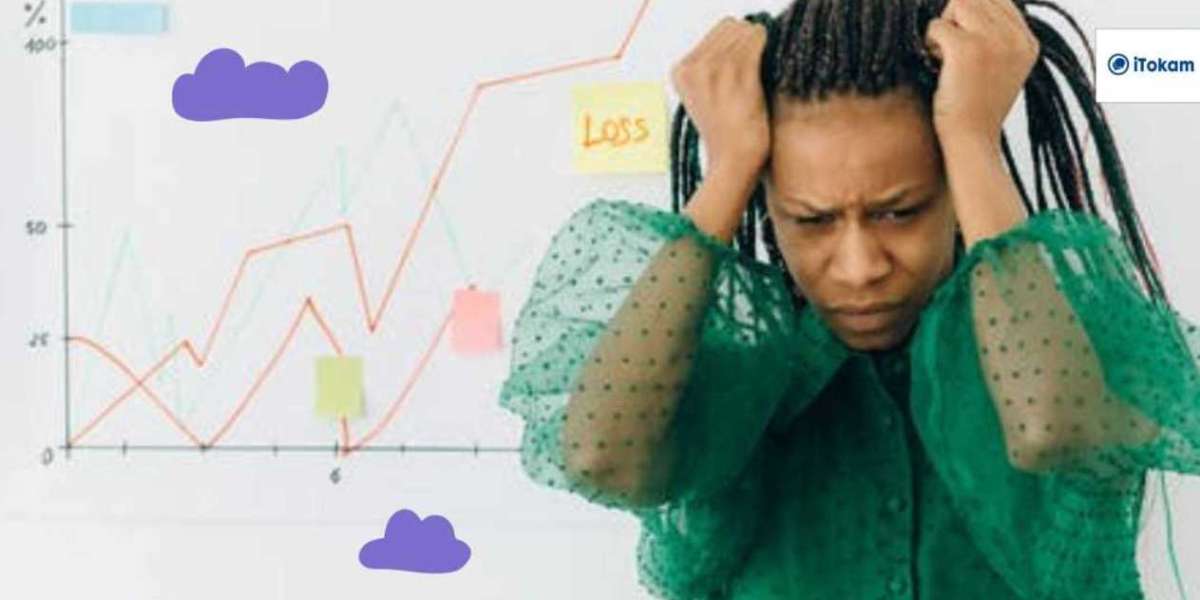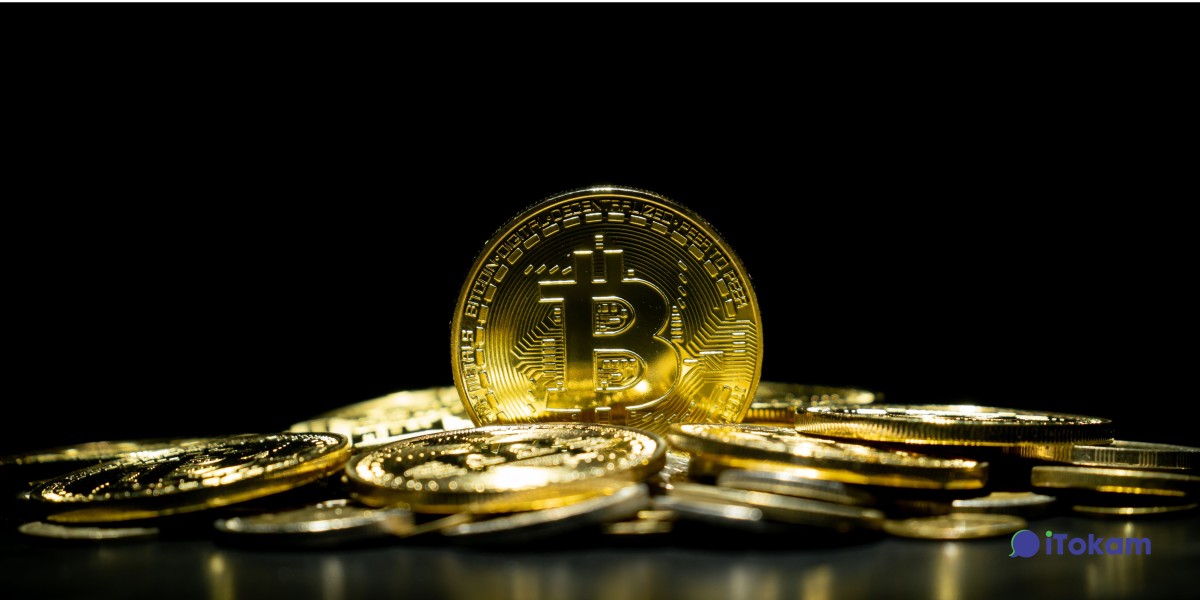As explained in this write-up, traders are their own worst enemies and human mistake is to blame for nearly all difficulties, losses, and failure encountered while trading. In other words, it's not hard to figure out why Forex traders lose money. The traders are the ones who make all the decisions.
The currency markets, as well as other forms of financial instrument trading, requires extensive forethought at various levels. Trading can't begin unless a trader grasps the fundamentals of the market and keeps tabs on how the environment is always shifting.
To improve their chances of success, forex traders should focus on continuous education, practicing with demo accounts, developing a robust trading plan, implementing effective risk management strategies, and maintaining discipline and emotional control. Additionally, traders should be cautious of get-rich-quick schemes or unrealistic promises of easy profits in the forex market. Let's get down to the details.
Overtrading
The most prevalent cause of Forex traders' failure is overtrading - either trading too much or too frequently. A lack of funds, unrealistic profit targets, or market addiction can all lead to overtrading.
Not enough money in trading account
Most traders are aware that it requires money to earn a profit. The availability of highly leveraged accounts is one of the most significant benefits of trading Forex. Because of this, even those who start with a small amount of money can make significant gains (or losses) by speculating on the value of financial assets.
f a sound risk management strategy is in place, it doesn't matter if a large investment base is acquired through heavy leverage or a large initial investment. A strong investment base is essential in this case. Long-term profitability is considerably improved when a trader has enough money in his or her trading account – and this reduces the psychological stress that comes with trading.
Thus, traders are able to put less money at risk per deal, yet they are still able to make fair gains. So, how much money do you need to start a business? It's critical to understand how to avoid losing money in Forex trading as a result of inefficient account management practices. It's possible for a Forex trading volume to be as little as 0.01 lot.
One thousand units of the base currency being traded is the equal of a micro lot. Of course, the best method to keep your risk under control is to make tiny trades. A stop-loss must be carefully placed by both novice and experienced traders. Beginner traders should not trade with more than one percent of their capital at a time, as a general rule of thumb. Trading with greater capital than this increases the risk of significant losses for beginner traders.
Long-term capital sufficiency can be ensured by carefully balancing leverage while trading lesser volumes. On an account with 1:400 leverage, for example, a single micro lot deal for the USD/EUR currency pair would only require a $250 deposit. As a result, the amount of capital that can be lost in a trade increases when trading with larger leverage. Because of the 1:400 leverage, a single micro lot of overtrading on an account with 1:100 leverage might result in quadrupled losses.
Addiction to the market
An additional reason why Forex traders frequently lose money is that they have been addicted to trading. They pursue the price in a way that institutional investors never do: Trading currencies on the forex market may be a lot of fun. It can be a fast-paced and adrenaline-inducing market with short-term trading intervals and volatile currency pairs. It can also generate a lot of worry if the market goes in a different direction than expected.
The best method to stay out of this situation is to have a plan B in place for when things don't go as planned. The reverse of this method is chasing the price, which is effectively entering and cancelling deals without a plan. This is gambling, not trading. According to some dealers, they have no control over the market whatsoever. There will be a cap on the amount of money that may be taken from the market at particular times.
It is important for traders to be able to recognize when a move is not worth taking because the risks are too great. Keep the account balance intact at this point in time by stopping trading. It is possible that new trade possibilities will present themselves in the market on the following day.
More winning deals are possible for traders who begin to view patience as an asset rather than a weakness. As counterintuitive as it may sound, avoiding the Forex market may be the best strategy for making money.
To open a Forex trading account with Admiral Markets if you are convinced that you can prevent trading addiction, you should do so. Admiral Markets is an award-winning, fully regulated broker that provides access to over 40 currency CFDs, tight spreads, rapid deposits and withdrawals, and so much more! To get started trading Forex right away, simply click the banner to the right.
When it comes to avoiding trading addiction, having a lot of patience is your best bet. But what if you've already fallen victim to trading addiction? The best advice comes from a professional. Markus Gabel, an experienced trader, coach, and mentor, will host a free webinar to discuss the dangers of trading addiction and how to avoid it.
Afraid to Change with the Times
Another reason why Forex traders lose money is to assume that one successful trading approach would yield unending profitable deals. There is no such thing as a "stable" market. They couldn't have traded them if they were. A trader must be able to keep up with the ever-changing nature of the markets and adapt to any situation that may arise.
However, these market shifts also bring with them new potential for profiting from trades, which is a welcome development. Rather than dreading change, a skilled trader embraces it. Additionally, a trader should be knowledgeable with tracking average volatility following financial news releases and distinguishing a trending market from a ranged market.
Volatility in the market can have a significant impact on trading results. Market volatility can last for hours, days, months, or even years, so traders need to be aware of this. In periods of volatility, many trading methods are less effective than in others. As a result, traders must always check that their approach is in line with the level of volatility existing in the market.
Even if a chosen strategy is not based on fundamentals, financial news releases are nevertheless vital to keep an eye on. Market mood can be shifted by monetary policy actions, such as a change in interest rates, or even startling economic statistics, such as an increase in unemployment or a decrease in consumer confidence.
In response to these events, the supply and demand for the individual currencies will be affected. Finally, traders often use the incorrect trading tools at the wrong time because they cannot tell the difference between markets that are trending and markets that are ranging.
Inadequate Control of Risks
One of the primary causes of Forex traders' rapid financial decline is ineffective risk management. Automatic take-profit and stop-loss systems aren't just thrown into trading platforms for no reason at all. In order to succeed as a trader, it is essential to learn and master them. For traders, it's not enough to know that these mechanisms exist, but they also need to know how to use them in accordance with market volatility levels projected for a given time period and for the life of an individual deal.
Remember that a'stop-loss to low' can wipe out a potentially successful investment. Due to a lack of volatility, a 'take-profit to high' may not be realized. As part of excellent risk management, it's crucial to keep an eye on the risk/reward ratio.
Risk-to-Return Ratio: What Is It?
Risk/Reward Ratio (or Risk Return Ratio/RR) is a predetermined measurement that helps traders forecast how much profit will be made if a deal goes as expected, or how much money will be lost if it doesn't go as planned. Consider the following scenario as a starting point. Risk/reward is 2:1 if your 'take profit' is set at 100 pips and your stop loss is set at 50 pips. This also indicates that if your trades are profitable, you will break even on at least one out of every three of them. When it comes to making money, traders should constantly keep these two elements in mind.
Use a risk-free sample account to entirely eliminate Forex trading hazards. Even if your money isn't on the line, you can use the most up-to-date trading data and analysis in a demo account. You may learn how to trade here, and you can also try new methods here if you are an experienced trader. Click the logo below to get started with a risk-free sample trading account!
Expectations that are too high
The Forex market attracts two types of traders. In the beginning, there are those who have strayed from the financial markets. Better trading conditions or just a broader range of investments are some of the reasons they switch to the Forex market. First-time retail investors who have never invested in the financial markets before make up the second category. Because of their prior trading successes, the first group naturally has a higher success rate in Forex trading.
They know the answers to newbie queries like, "Why do Forex traders fail?" and "Why do all traders fail?". When it comes to profits, experienced traders tend to have a more realistic outlook. Rather than following the price or bending the trading rules of their strategy, they adopt a more measured approach. Realistic expectations can alleviate some of the psychological stress that trading can cause. During a losing trade, some novice traders can succumb to their emotions, leading to a series of bad decisions.
The first-time trader must understand that Forex is not a way to make a fortune overnight. Every business or professional job has good and bad times along with the possibility of losing money. A trader can rest easy knowing that even if one deal goes wrong, their long-term results will not be harmed because of a single trade gone wrong.
Also Read: Smart Passive Income Ideas You Can Start Now
Keep in mind that your greatest assets will be perseverance and patience. One or two huge trades don't have to produce a small fortune for traders. This just serves to promote negative trading behaviors and, over time, can result in significant losses. The greatest strategy is to make tiny trades over a long period of time and see favorable compounding returns.
Market manipulation and unforeseen events
The forex market can be influenced by external factors beyond a trader's control, such as market manipulation, economic announcements, geopolitical events, or natural disasters. These unforeseen events can lead to unpredictable market conditions and unexpected losses.
Market manipulation refers to the deliberate attempt to interfere with the natural supply and demand forces in a financial market in order to distort prices or create an artificial market movement. It involves fraudulent or deceptive practices that can manipulate the price, volume, or availability of a financial instrument for personal gain. Market manipulation can be carried out by individuals, institutions, or even organized groups.
Unforeseen events, on the other hand, are unexpected occurrences that can significantly impact financial markets. These events can be economic, geopolitical, or natural in nature.




